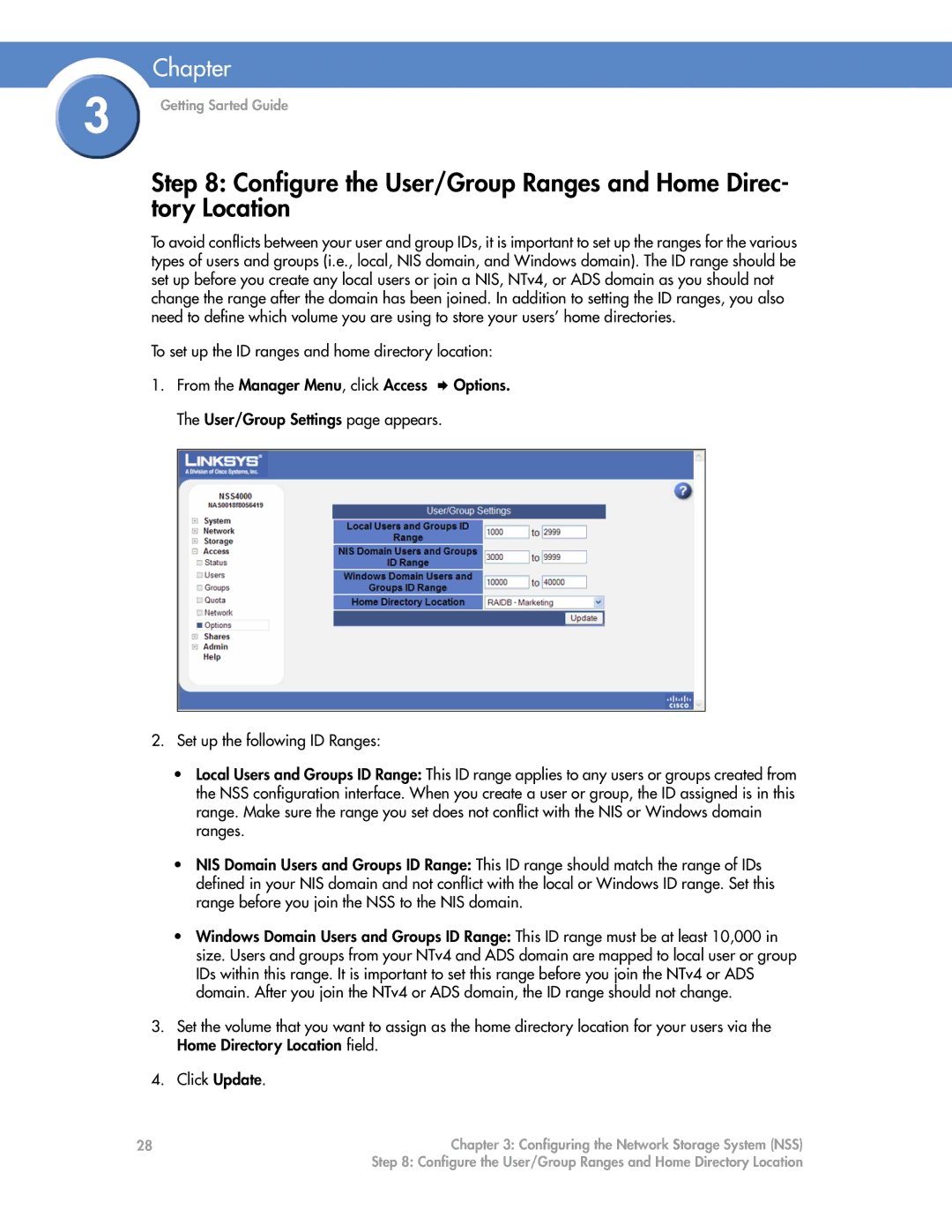
Chapter
3 | Getting Sarted Guide |
|
Step 8: Configure the User/Group Ranges and Home Direc- tory Location
To avoid conflicts between your user and group IDs, it is important to set up the ranges for the various types of users and groups (i.e., local, NIS domain, and Windows domain). The ID range should be set up before you create any local users or join a NIS, NTv4, or ADS domain as you should not change the range after the domain has been joined. In addition to setting the ID ranges, you also need to define which volume you are using to store your users’ home directories.
To set up the ID ranges and home directory location:
1. From the Manager Menu, click Access Options.
The User/Group Settings page appears.
2.Set up the following ID Ranges:
•Local Users and Groups ID Range: This ID range applies to any users or groups created from the NSS configuration interface. When you create a user or group, the ID assigned is in this range. Make sure the range you set does not conflict with the NIS or Windows domain ranges.
•NIS Domain Users and Groups ID Range: This ID range should match the range of IDs defined in your NIS domain and not conflict with the local or Windows ID range. Set this range before you join the NSS to the NIS domain.
•Windows Domain Users and Groups ID Range: This ID range must be at least 10,000 in size. Users and groups from your NTv4 and ADS domain are mapped to local user or group IDs within this range. It is important to set this range before you join the NTv4 or ADS domain. After you join the NTv4 or ADS domain, the ID range should not change.
3.Set the volume that you want to assign as the home directory location for your users via the Home Directory Location field.
4.Click Update.
28 | Chapter 3: Configuring the Network Storage System (NSS) |
| Step 8: Configure the User/Group Ranges and Home Directory Location |
